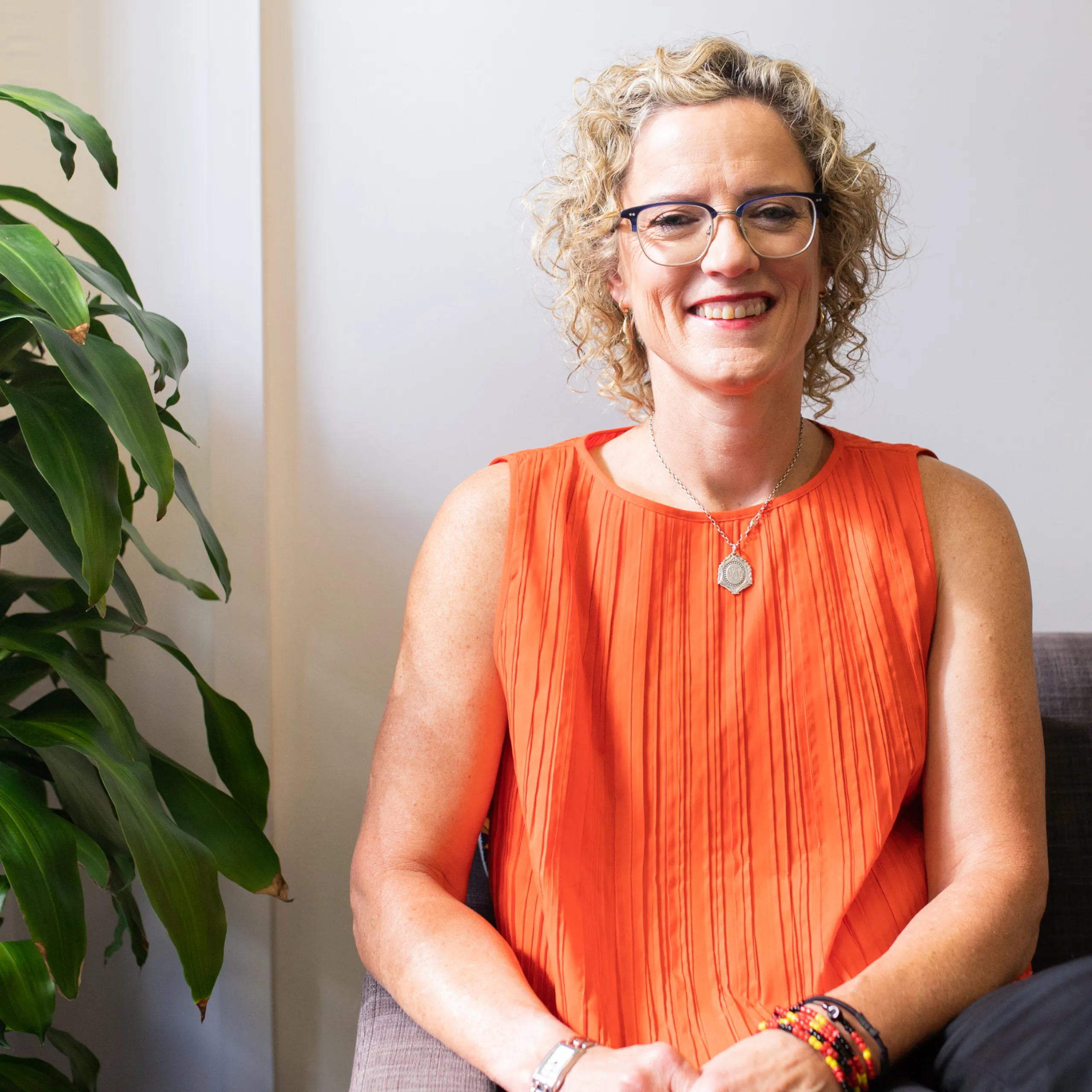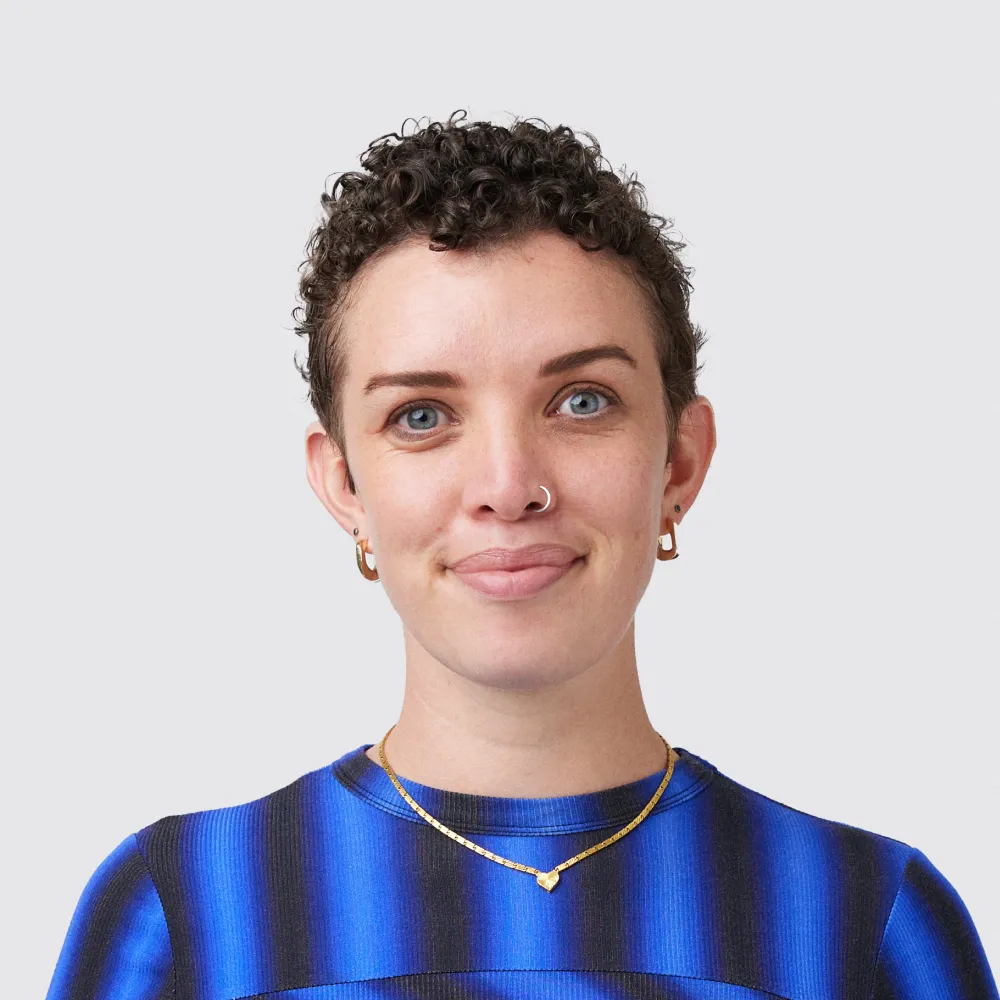“The fire in my belly is for every woman and girl to not only be free from violence, but to have the choice to be who she wants to be.” Read our chat with Patty Kinnersly, Chief Executive Officer of Our Watch, the national leader in the primary prevention of violence against women and their children in Australia.
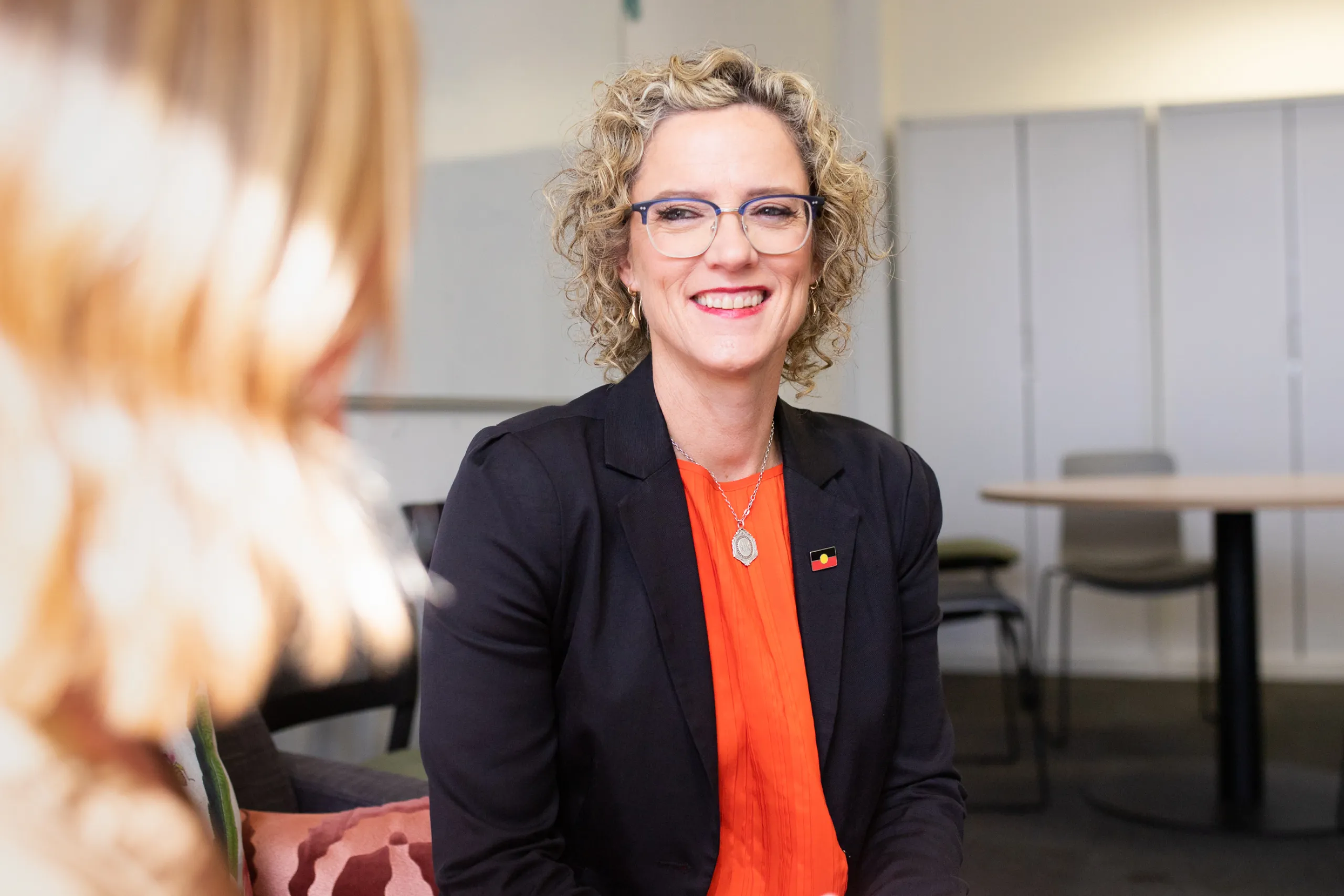
In conversation
When somebody asks you what you do, how do you explain it?
It really depends on how much knowledge they have about gender inequality and its impacts on violence against women. But, put simply, I’ll say that I've got this really amazing job where I get to contribute to creating a community that’s better for everyone with a particular focus on preventing violence against women.
In Australia we have a narrative that everyone can have a fair go - that if you work hard, you’ll get to where you need to go – but it’s always not true, and particularly for women. For a wide range of reasons, women are discriminated against - often inadvertently - by other individuals, by systems, by governments. Driven by gender inequality, people can have harmful attitudes about women that do not value women as equal, and these harmful ideas and behaviours result in increased violence against women. My job is to help challenge those attitudes and behaviours that are present in all the places we spend our time; at work, at home, online, or at sport and to remove barriers to allowing women to thrive, so we have a community that’s fairer and more equal, and where everyone gets a choice on how they contribute.
My role is about prevention. I don’t work with people who are victims of violence, who are usually women, or with perpetrators of violence, who are usually men.
I work with politicians to ensure the policies they write enable equality for women and men. I work with the CEOs of sporting organisations to make sure that women can participate fully. I work with education leaders to ensure that they understand what consent and respect means.
This means teaching young children they have a right to say no when someone wants to hug them and making sure our teenagers understand what healthy relationships look like during those pivotal and influential years of adolescence.
This respect continues through our TAFEs, universities and workplaces. I support these industry leaders to ensure they are leading safe and equal spaces.
So, I’m supporting people to help them to create a fairer environment for everybody to thrive, and particularly women.
Why do you do what you do? Tell us about the fire inside that's driving you to do this.
I think the notion of fairness is deeply embedded in who I am.
For me, it comes from my upbringing. I was brought up on a farm, with parents who didn’t necessarily talk about equality, they just got on and did it. Whether it’s the person up the road who needs a hand because the farmer’s gone to hospital and the crops need planting, or after bushfires, when we’d all pile into utes and go to where the bushfire was and help people clean up afterward. Or whether it was the older person who lived on their own who would arrive for Sunday lunch – it was embedded in us that you reach out and support other people in the community.
It wasn’t until I left school and started as a youth worker that I realised how lucky I’d been, to grow up in a family where I was loved, where there was always food, where we went on family holidays. It wasn't the experience that everyone has. Not everyone is able to rely on being warm, being fed, being loved, having opportunities.
That’s when I began to understand that when people talked of privilege, they weren’t necessarily talking about money. Often people, when challenged, say “Oh, but I had to work hard to be where I am.” That’s not what I’m talking about. Privilege means you know you’ll get access to an education, that you’ll have shoes on your feet, you know that if you deeply want to do something, you’ll be supported to do it. You know you won’t be followed around a supermarket because people are assuming you’ll shop lift. And then it became so overwhelmingly obvious to me that we weren’t getting the best out of every person in the community, and I had a set of skills and a passion that meant I could help to improve that. The fire in my belly is for every woman and girl to not only be free from violence, but to have the choice to be who she wants to be.
The thought that the full potential of women and girls isn’t being realised and many are living in violent circumstances is not ok. We can change it.
The fire in my belly is for every woman and girl to not only be free from violence, but to have the choice to be who she wants to be.
Patty Kinnersly
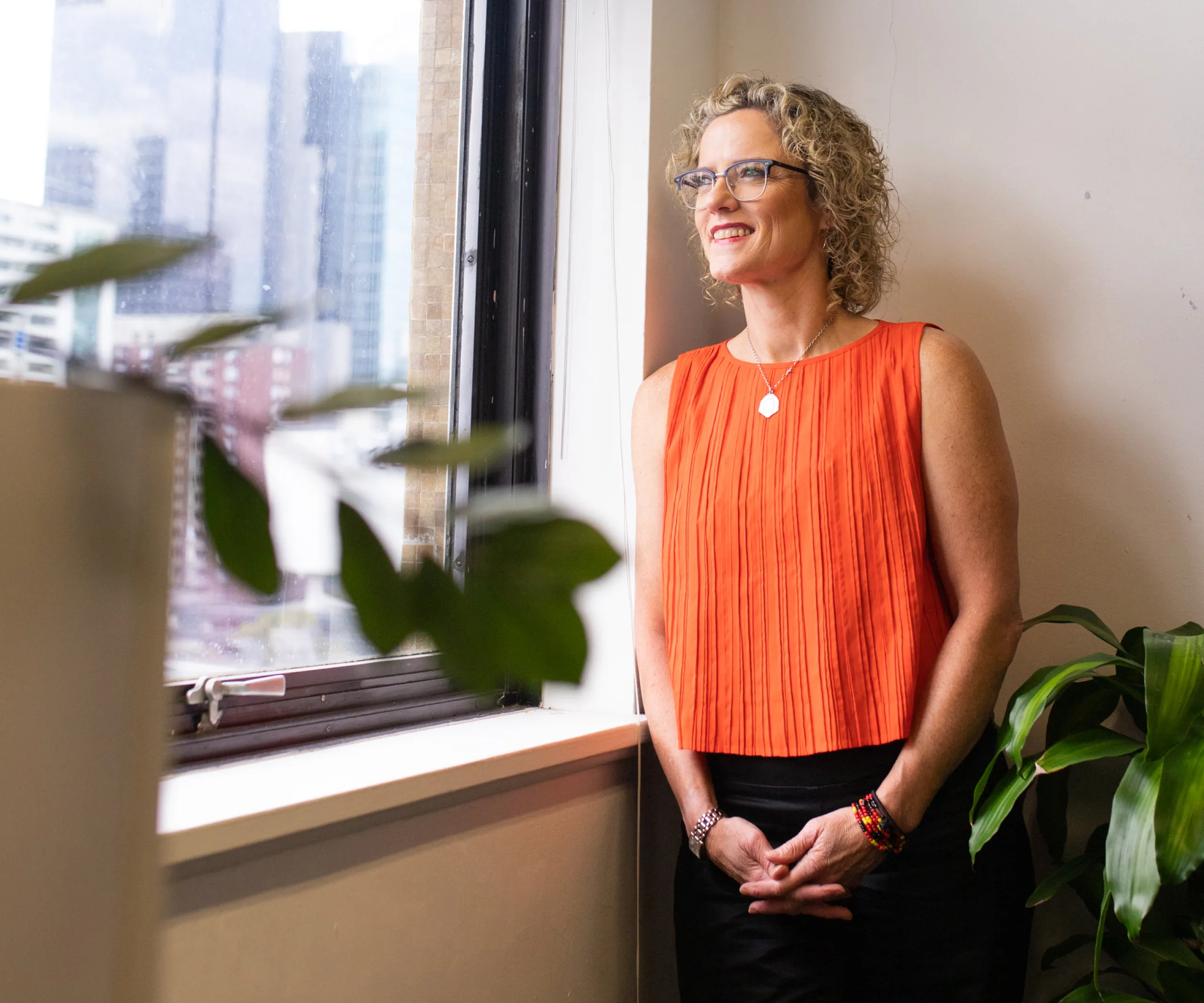
What project are you most proud of? Or can you tell us about something that you're working on at the moment?
When I was the CEO of Women’s Health Grampians (2006-2015), we were funded for a project called Act@Work. It was about creating a workplace environment that is safe and respectful for women. Now at Our Watch, we’ve developed a national leading program called Workplace Equality and Respect . Many of its underpinnings come from Act@Work. It’s definitely improved and been taken a lot further but, at that time, we were at the forefront of some of the whole-of-workplace work, which I’m proud about.
I’m also proud of creating an environment where staff can thrive. As a leader, creating an environment where people feel they can be their best is vital.
But I’m probably most proud of how we’ve learned to do better in our work with Aboriginal and Torres Strait Islander women.
As a non-Indigenous led organisation, we weren’t always capturing the voice of Aboriginal and Torres Strait Islander people in our work. So, in the last 12 months, we’ve developed a group that includes our Board Chair, Aboriginal and Torres Strait Islander board members, my most senior executive working in this space and Aboriginal and Torres Strait Islander staff members. This group is less than a year old and we're learning along the way. I’m also learning along the way, but it’s already improved how I lead this work. I’m proud that an organisation like ours has been able to create a space where we’re having a genuine go and committing to listening and learning from Aboriginal board and staff members.
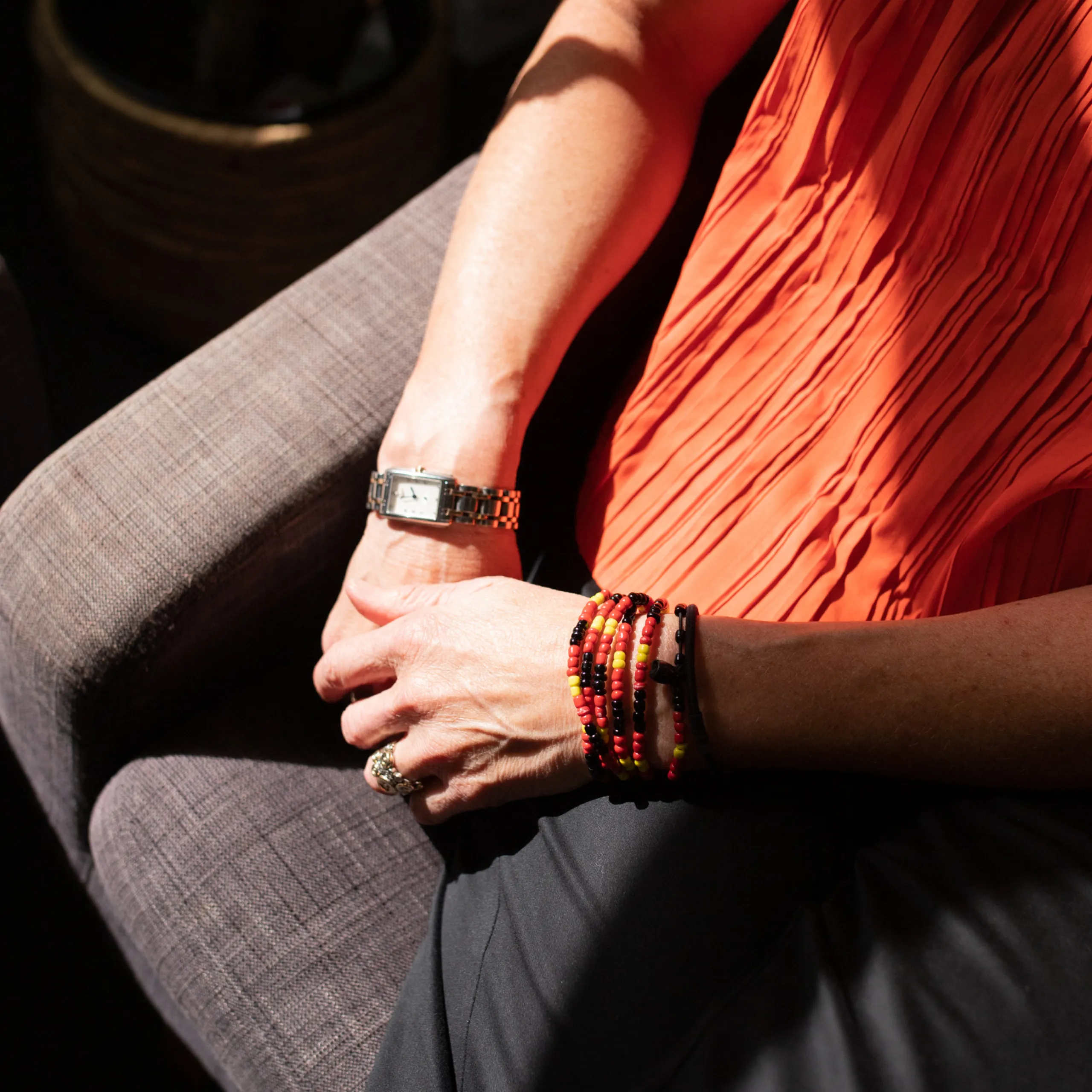
What's your dream opportunity for making a positive impact in the world?
This role is my dream opportunity! The people I work with, the opportunity to influence governments, the leaders of industry, sport, media and so forth. I’m someone who believes strongly that when you’re in a role, you do it to the best of your ability, and look for opportunities to influence.
I like looking around the country and seeing so many people contributing to improving the circumstances for women: whether it’s (outgoing) Sex Discrimination Commissioner Kate Jenkins taking her role by the scruff of the neck and making amazing changes, like the positive duty in workplaces. Or Australia's eSafety Commissioner, Julie Inman-Grant, who works to make the online world safer for our children and young people.
There are people all around Australia doing amazing work and I love being a part of this. Our Watch is an important organisation in the landscape. It’s the only national organisation with the mandate to prevent violence against women and to influence our community at the highest levels. It’s very important to me that I give everything I have to this job because it’s an important part of the system.
What needs to change today to be able to do that tomorrow?
We are at a point where we need people to stop furiously agreeing that violence against women is bad and start to take action in their sphere of influence. I feel like we’re past that point of awareness-raising, although it will continue to be important. People in senior roles – roles of influence – parents, sports coaches, CEOs, those in the media, people in government, need to start acting. Call out sexist jokes. Ensure your workplace supports progress towards gender equality. Talk to your children about consent. We need everyone taking action, and together we can make the world a safer and more equal place for women.
We are at a point where we need people to stop furiously agreeing that violence against women is bad and start to take action in their sphere of influence.
Patty Kinnersley
